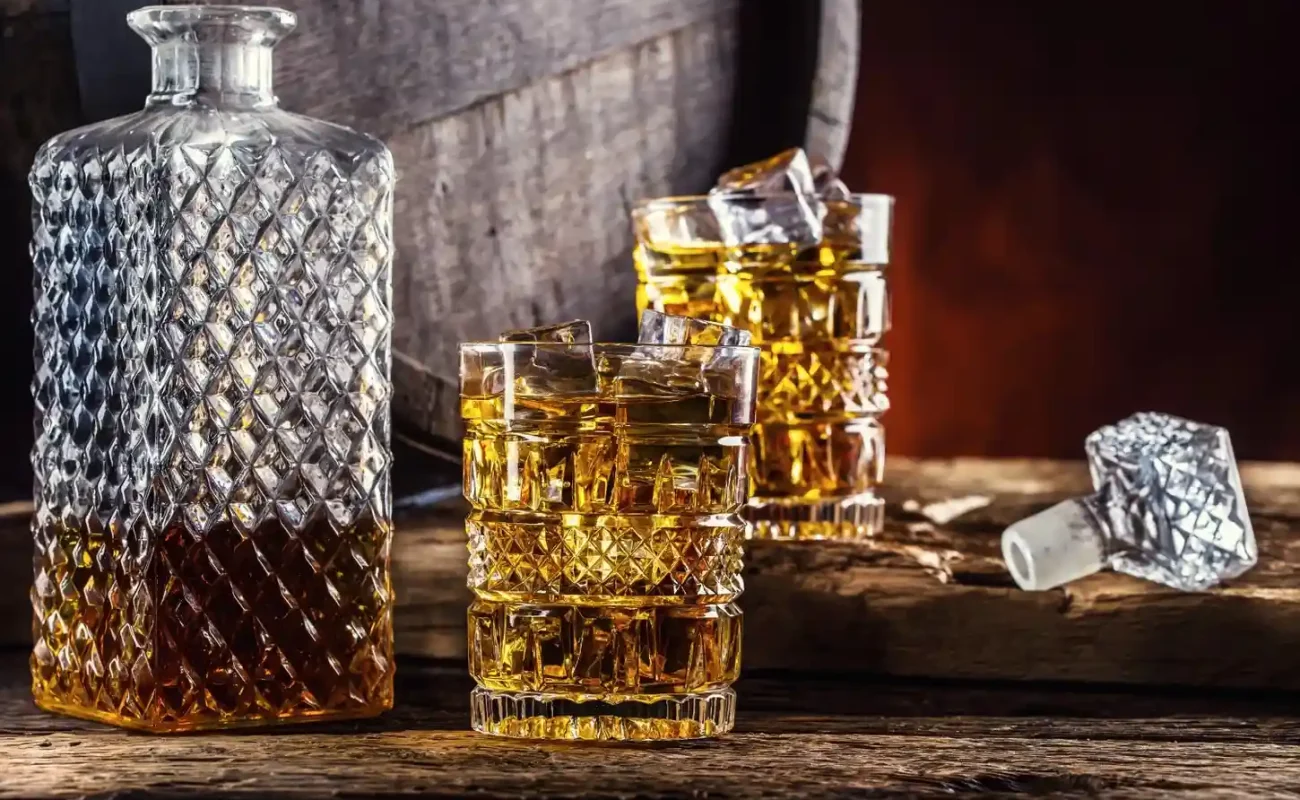
How Do Scotch vs Irish Whiskey Clash on Smoky Vibes
When whiskey lovers gather, arguments can flare faster than peat in a furnace. Some swear by the raw, smoky drama of Scotch, while others raise a glass to the silky elegance of Irish whiskey. It is a battle of fire versus finesse, rugged peat versus fruity charm, stormy coastlines versus rolling green hills.
The question is simple yet endlessly debated: Scotch vs Irish whiskey—which side wins the smoky showdown?
This is not just about taste. It is about tradition, culture, and identity. Scotch has centuries of peat-driven pride, while Irish whiskey glows with smoothness and storytelling. Let us dive into how these two giants clash on smoky vibes, without picking favorites—because the fun is in the comparison.
Scotch vs Irish Whiskey Origins
Scotland and Ireland may be neighbors, but their whiskeys tell different stories.
- Scotland built its whiskey on survival, where peat was the most reliable fuel. Over time, smoke became an inseparable part of Scotch’s DNA.
- Ireland leaned into hospitality; crafting whiskey meant for sharing. Triple distillation gave Irish whiskey its legendary smoothness, focusing on fruit and lightness instead of fire.
This is why Scotch vs Irish pot still whiskey often sparks curiosity: one is rugged and peaty, while the other is creamy, spicy, and unmistakably Irish.
Scotch vs Irish Whiskey Peat Smoke Science
The clash of smoke begins with peat—the boggy earth formed over thousands of years. When peat is burned during malting, it releases phenols, which cling to barley and create that famous smoky flavor.
- In Scotch, peat is central. It can taste like bonfires, brine, or even iodine, depending on the region.
- In Irish whiskey, peat is usually left out. Most Irish distillers’ dry barley with clean heat, leaving behind fruit, vanilla, and spice.
That is the heart of the Scotch vs Irish whiskey peat debate—one embraces peat as a signature, the other saves smoke for rare experiments.
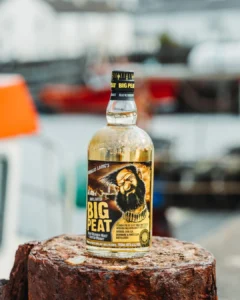
Role of Iconic Smoke in Scotch vs Irish Whiskey
For many Scotch fans, smoke is not optional—it is a badge of honor.
- Islay whiskies roar with maritime peat. A perfect example is Big Peat Islay Blended Malt Scotch Whisky, which combines several Islay distilleries into one smoky, briny powerhouse.
- Highlands and Islands add layers of heather and wood smoke.
- Speyside occasionally dips into peat but usually leans sweeter.
- Modern innovators like Isle of Raasay Single Malt Scotch Whisky prove that Scotch can balance tradition with experimentation, delivering nuanced smoke alongside fruit and spice.
When it comes to smoky swagger in Irish whiskey vs Scotch brands, single malt Scotch tends to dominate the conversation.
Scotch vs Smooth Irish Alternative
Irish whiskey usually plays in a different key—light, approachable, and fruit-forward.
- Triple distillation ensures silky texture and drinkability.
- Irish whiskey taste is marked by green apples, pears, honey, vanilla, and soft spice.
- Styles include:
- Blended Irish whiskey such as Fercullen Falls Small Batch Blended Irish Whiskey, balancing freshness and oak complexity.
- Irish single malt for layered depth and fruit.
- Pot still whiskey, a uniquely Irish invention, delivering creamy spice. Drumshanbo Single Pot Still Irish Whiskey is a modern example that bridges heritage and innovation.
So, while Scotch charges forward with smoke, Irish whiskey whispers with charm.
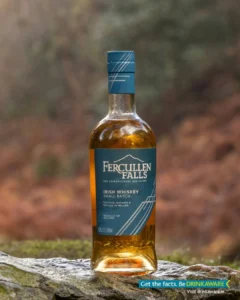
Scotch vs Irish Whiskey Key Differences
Peat and Smoke – Scotch whiskey, especially from Islay, often carries bold smoky, earthy notes thanks to peat. Irish whiskey, by contrast, keeps smoke to a minimum, with only a few rare peated expressions.
Flavor Profile – Scotch leans toward smoky, earthy, sometimes medicinal, and even briny flavors, while Irish whiskey is known for being fruity, floral, honeyed, and creamy.
Texture – Scotch usually feels weighty, oily, and long-lingering on the palate, whereas Irish whiskey offers a silky, clean, and approachable mouthfeel.
Distillation Style – Most Scotch is double distilled, enhancing its robust character. Irish whiskey is typically triple distilled, giving it extra smoothness and refinement.
Whiskey Aging Casks – Scotch matures in sherry, bourbon, wine, and even experimental casks, whereas Irish whiskey embraces a broader range including bourbon, sherry, wine, and port, creating diverse expressions.
Cultural Symbol – Scotch represents rugged survival and deep tradition, while Irish whiskey embodies storytelling, warmth, and a sense of community.
These are the Scotch vs Irish whiskey key differences that fuel countless debates among enthusiasts.
Scotch vs Irish Whiskey as Cultural Symbols
The smoky divide is not just chemistry—it is culture.
- Scotch smoke reflects the rugged landscapes of Scotland. Every smoky sip is a connection to windswept coasts and ancient peat bogs.
- Irish smoothness reflects community and conversation. A dram feels like a song of warmth, laughter, and stories flowing around the fire.
- In other words, Scotch brings the bonfire, while Irish whiskey brings the warmth of the people around it.
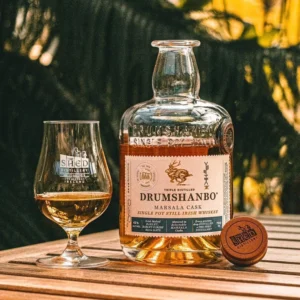
Scotch vs Irish Whiskey Tasting Experiences
Imagine two different whiskey journeys:
- Scotch: Your sip begins sharp, medicinal, and salty. Then waves of smoke, earth, and ash roll in. A dram of Big Peat Islay Blended Malt Scotch Whisky leaves a lasting smoky echo.
- Irish whiskey: The experience begins with crisp fruit, soft honey, and gentle spice. Fercullen Falls Small Batch offers bright freshness, while Drumshanbo Single Pot Still whiskey delivers creamy depth.
Both are memorable—one a stormy sea, the other a sunny orchard.
Scotch vs Irish Whiskey Food Pairings
Pairings highlight their contrasts beautifully:
- Scotch whiskey pairs with: Smoked salmon, grilled meats, aged cheeses, and stormy winter nights.
- Irish whiskey pairs with: Apple tarts, creamy cheeses, roasted chicken, and lively evenings with friends.
Think of Scotch as the brooding poet and Irish whiskey as the witty storyteller—they fit different moods and menus.
Scotch vs Irish Whiskey Choices for Every Drinker
If you are stuck in the smoky clash, here is a playful guide:
- Beginners: Try blended Irish whiskey like Fercullen Falls for a friendly introduction.
- Adventurous: Seek out Irish single malt or bold pot stills like Drumshanbo.
- Peat lovers: For peat lovers, Big Peat dares your palate with bold intensity.
- Balance seekers: Isle of Raasay proves Scotch can be smoky yet refined.
The beauty of Scotch vs Irish whiskey lies in switching sides depending on your mood.
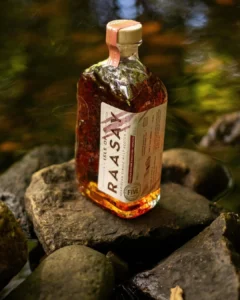
Future of Smoke for Scotch vs Irish Whiskey
Both traditions continue to evolve.
- Scotch distillers experiment with softer peat or unusual casks.
- Irish distillers surprise fans with occasional smoky releases.
- Innovation with whiskey aging casks is giving both countries exciting new expressions—port pipes, rum barrels, and beyond.
The future of the smoky clash looks bright, creative, and full of new stories.
Conclusion
The smoky clash of Scotch vs Irish whiskey is less about winners and more about contrasts. In India, whiskies like Big Peat, Isle of Raasay single malt scotch whiskey, Fercullen Falls, and Drumshanbo are admired for their craftsmanship—Scotch showcasing bold peat and smoke, while Irish whiskey shines with smoothness and charm.
Two nations. Two traditions. Two personalities. And one truth: smoky or smooth, both deserve a place on your whiskey journey.
Interested in exploring premium whiskies? Solis Group’s curated selection brings you iconic names like Fercullen Falls Small Batch Blended Irish Whiskey, Drumshanbo Single Pot Still Irish Whiskey, a unique take on the smoky Scotch vs Irish whiskey debate.
FAQs
Which is smokier Scotch or Irish whiskey?
Scotch is smokier, especially Islay whiskies like Big Peat. Irish whiskey is celebrated for its smooth character, with smokiness appearing only on rare occasions.
Why is Scotch smoky while Irish whiskey is not?
Scotch often uses peat fires in malting, while Irish whiskey is typically dried with clean heat.
Are all Scotch whiskies smoky?
No. Some, like Isle of Raasay, balance gentle smoke with fruit and spice.
Does Irish whiskey ever have smoke?
Yes, though rarely. Most Irish whiskeys like Fercullen Falls or Drumshanbo focus on smoothness instead.
What defines the Irish whiskey taste compared to Scotch?
Irish whiskey taste is fruity, floral, and creamy. Scotch often leans smoky, earthy, and briny.
How do blended Irish whiskey and Irish single malt differ?
Blended Irish whiskey, like Fercullen Falls, mixes styles for approachability. Irish single malt is 100% malted barley from one distillery, offering complexity.
How do whiskey aging casks affect flavor?
Ex-bourbon, sherry, or wine casks add vanilla, spice, nuttiness, or fruitiness, shaping both Scotch and Irish whiskey.
What is the Scotch vs Irish whiskey key differences?
The biggest differences are peat use, distillation, flavor, and heritage. Scotch leans smoky and bold, Irish whiskey smooth and approachable.
-
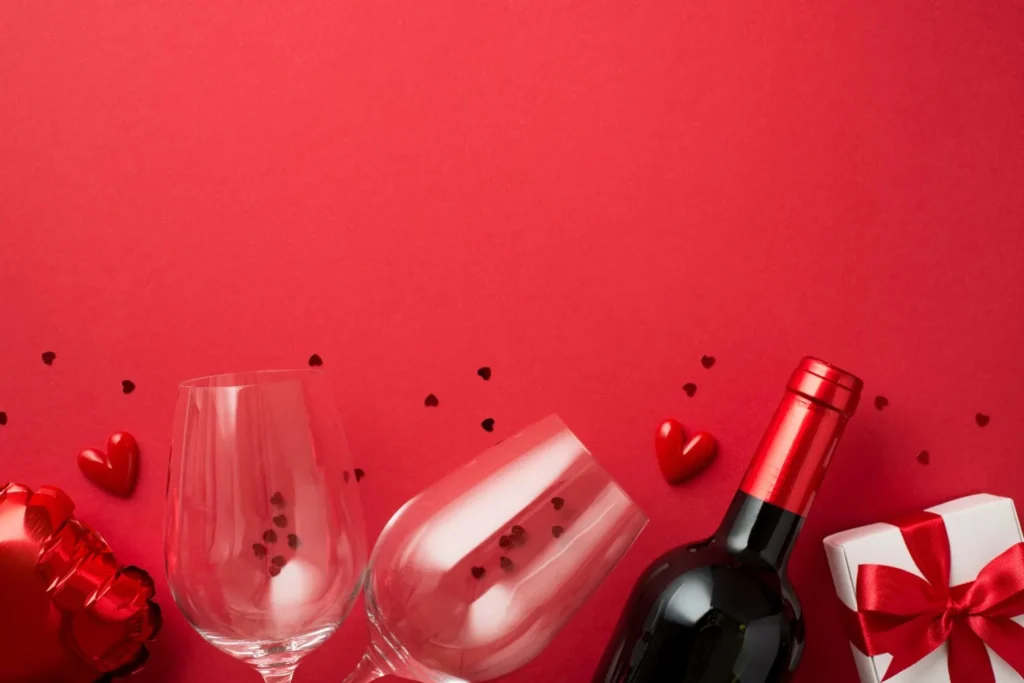 Wine Turns Valentine Week into a Test of Social Chemistry
Wine Turns Valentine Week into a Test of Social Chemistry -
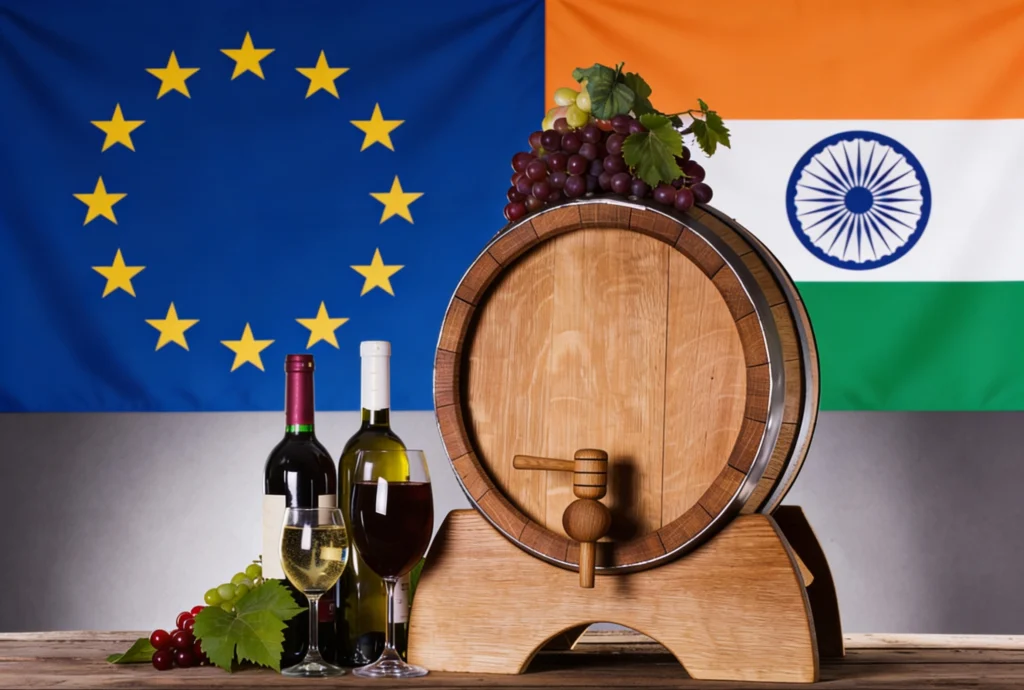 India-EU Free Trade Agreement Signals Big Moment for Imported Wine
India-EU Free Trade Agreement Signals Big Moment for Imported Wine -
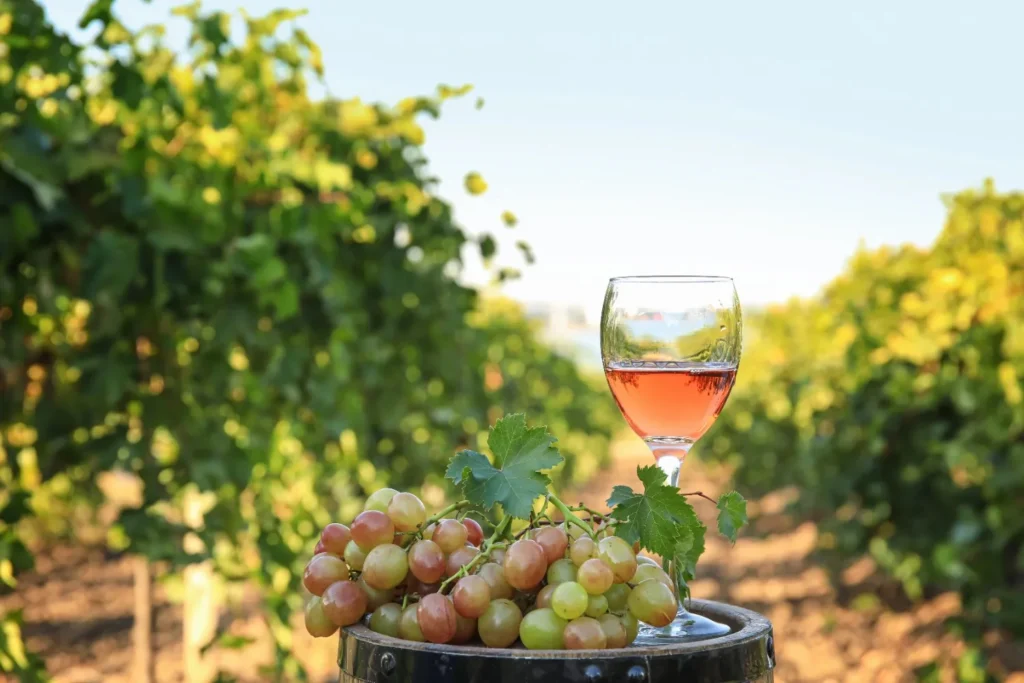 Single Vineyard Wines Follow Place and Blends keeps Balance
Single Vineyard Wines Follow Place and Blends keeps Balance -
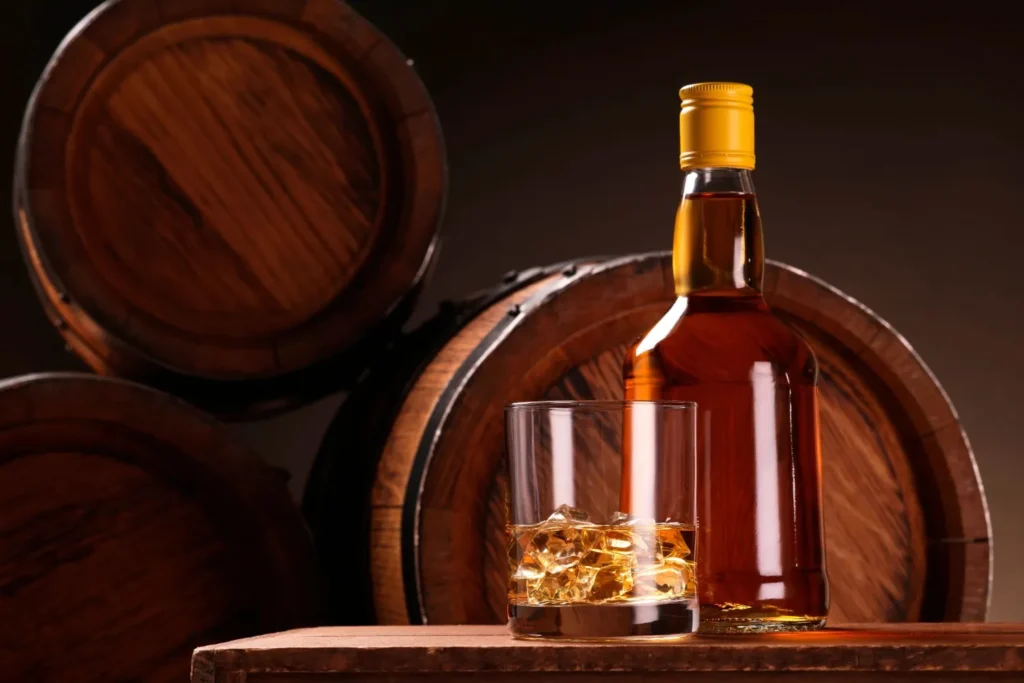 One Cask Decision That Can Ruin or Refine Irish Whiskey
One Cask Decision That Can Ruin or Refine Irish Whiskey -
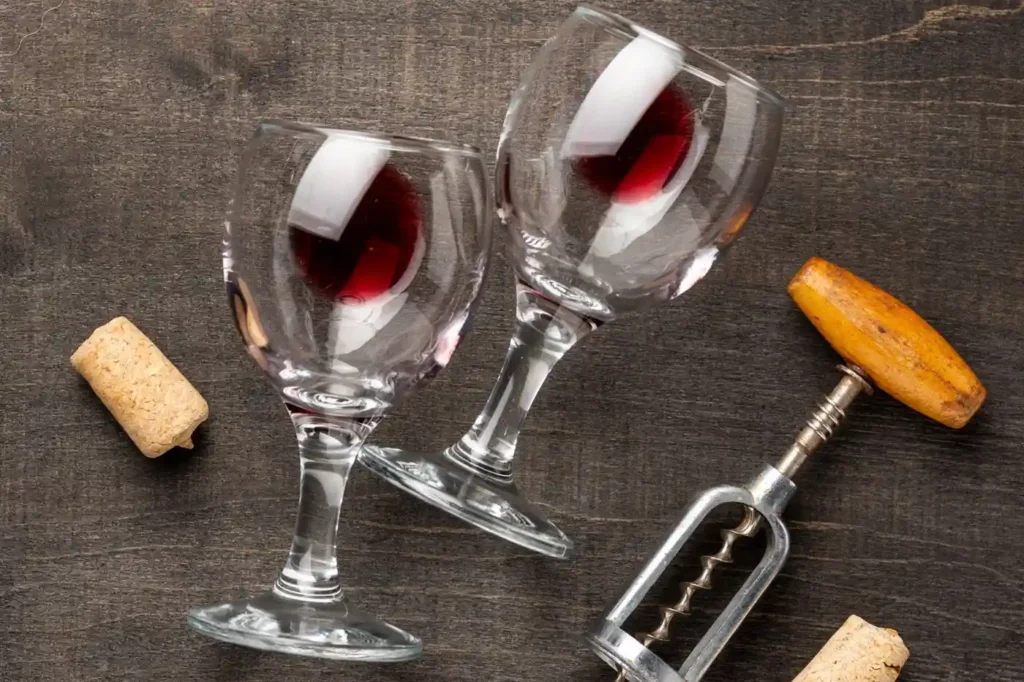 Vermouth Adds Herbal Magic Without Losing Wine’s Essence
Vermouth Adds Herbal Magic Without Losing Wine’s Essence -
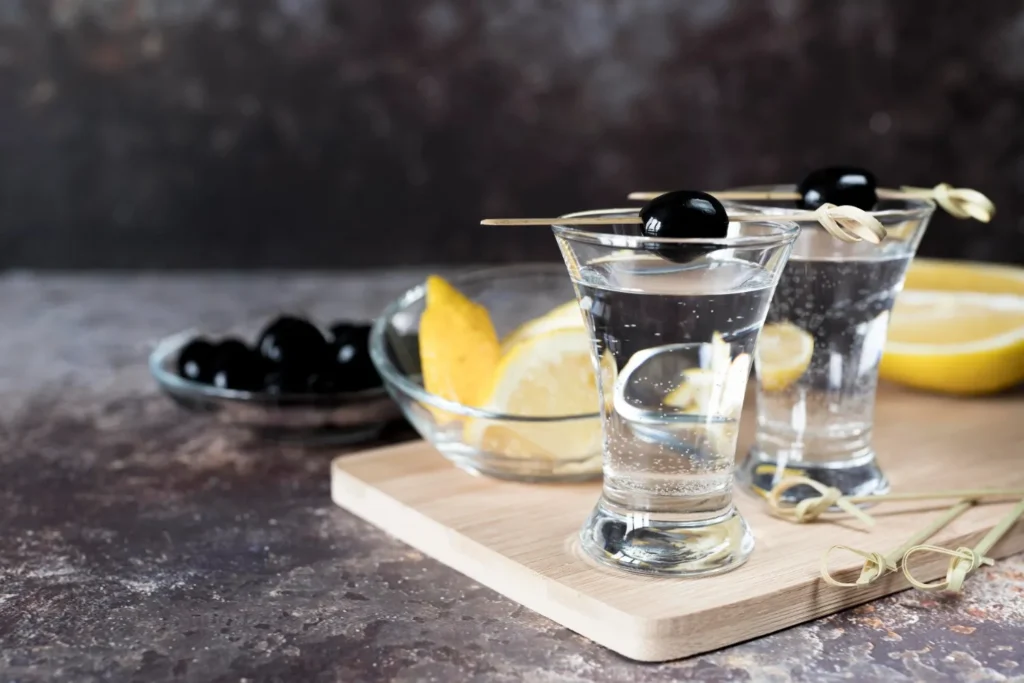 Gin and Vodka Teach How Flavors Can Be Bold Yet Gentle
Gin and Vodka Teach How Flavors Can Be Bold Yet Gentle -
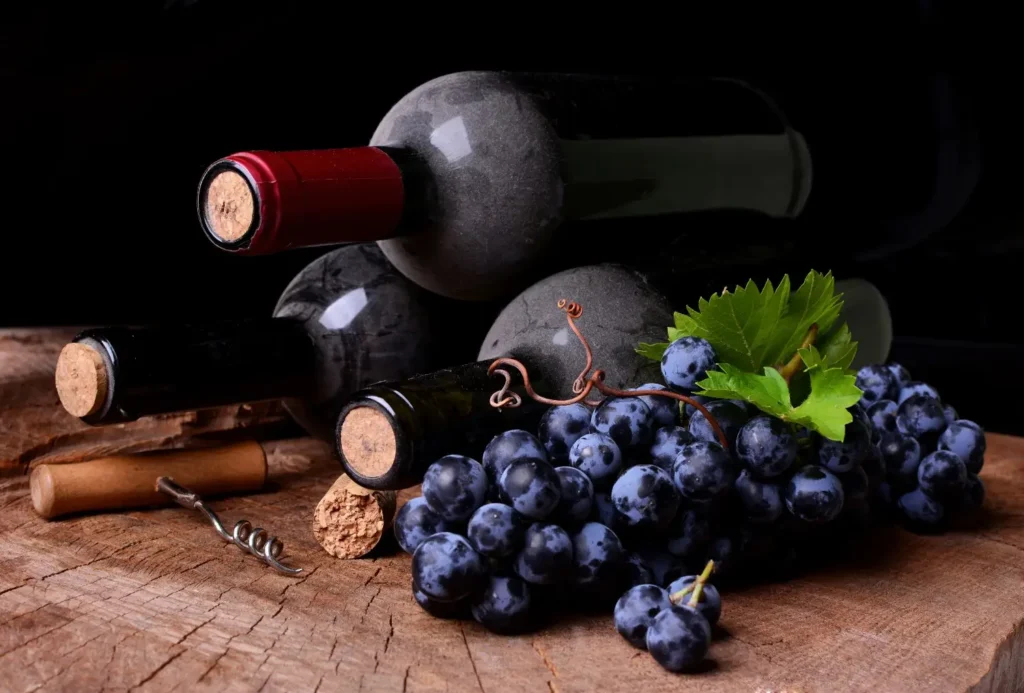 Aging Writes the Real Port Wine Story Beyond Grapes
Aging Writes the Real Port Wine Story Beyond Grapes -
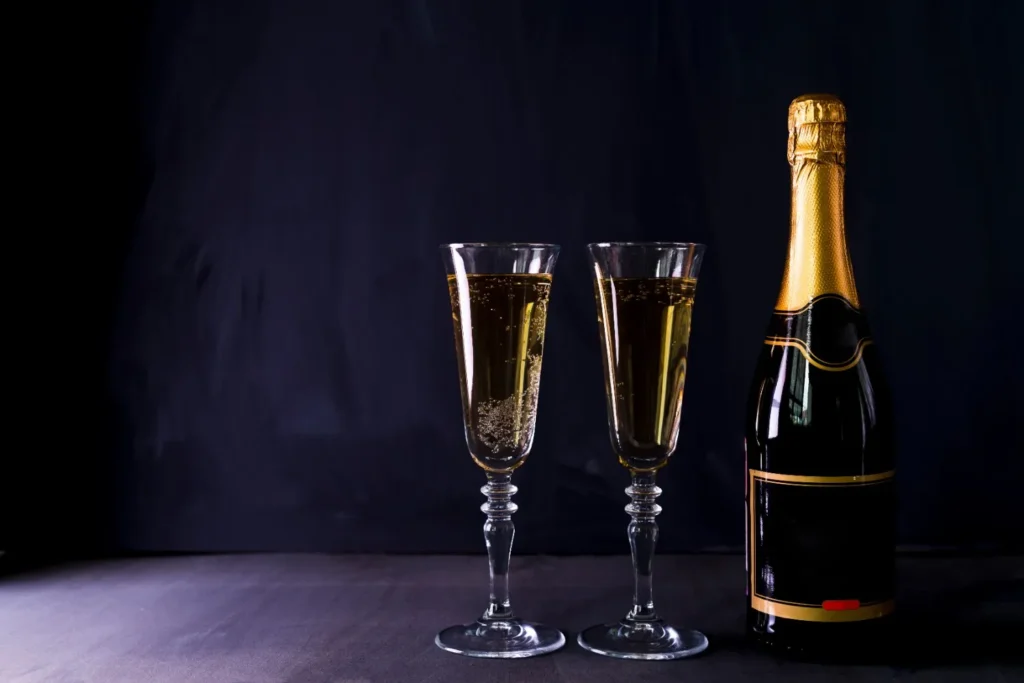 Vintage Champagne Taste Younger Than Modern Bottles
Vintage Champagne Taste Younger Than Modern Bottles -
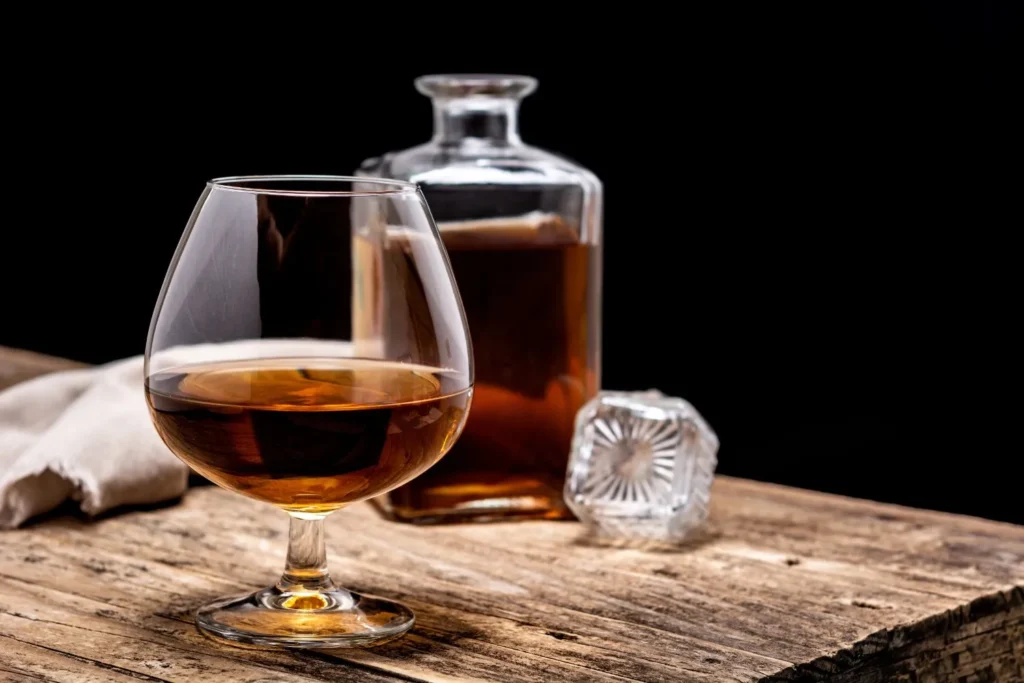 Cognac Labels Hold Clues That Transform How You Sip
Cognac Labels Hold Clues That Transform How You Sip -
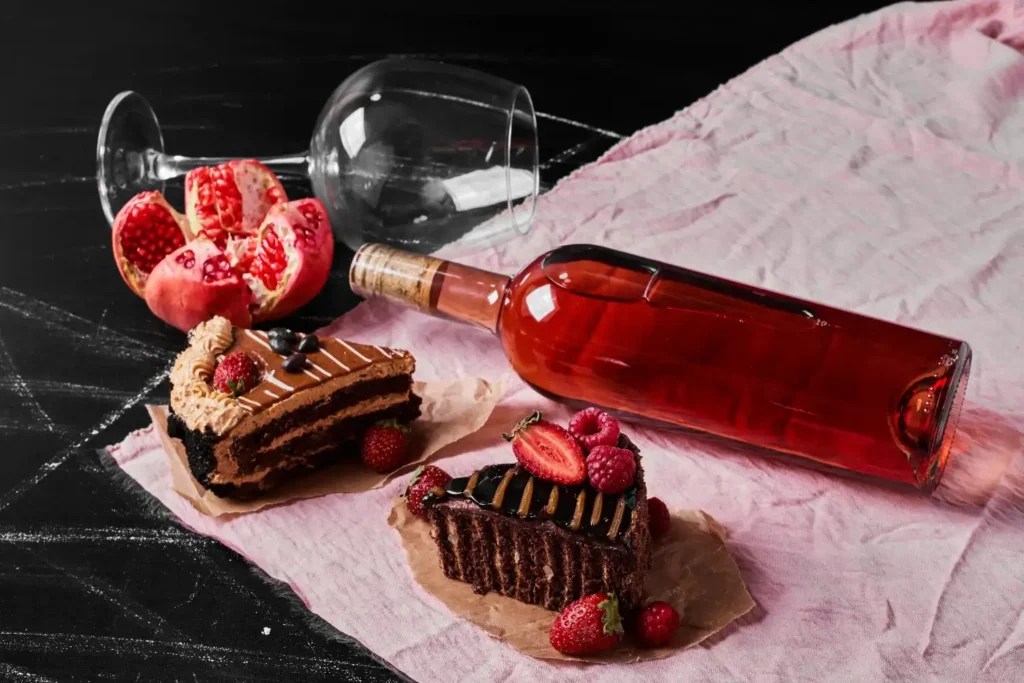 Old World and New World Rosé Reveal Different Flavour Stories
Old World and New World Rosé Reveal Different Flavour Stories
-
 Christmas Cocktails You Can Make at Home
Christmas Cocktails You Can Make at Home -
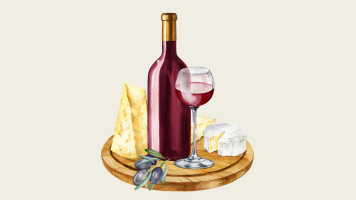 Sound Of Christmas Wine And Cheese?
Sound Of Christmas Wine And Cheese? -
 A Fresh Take on New Year’s Resolutions
A Fresh Take on New Year’s Resolutions -
 The Art of Smelling Wine Like a True Connoisseur
The Art of Smelling Wine Like a True Connoisseur -
 Looking for the Best Wine? Here's Where to Find It!
Looking for the Best Wine? Here's Where to Find It! -
 Read This Before You Buy Your Dad a Whisky.
Read This Before You Buy Your Dad a Whisky. -
 The Art of Pairing Wine with Indian Food
The Art of Pairing Wine with Indian Food -
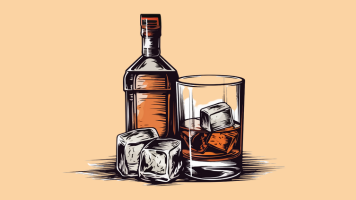 Whiskey on the Rocks — Cool Choice or Flavor Mistake?
Whiskey on the Rocks — Cool Choice or Flavor Mistake? -
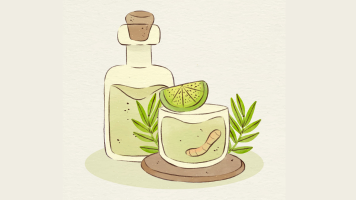 The Ingredients & Botanicals That Define Gin
The Ingredients & Botanicals That Define Gin -
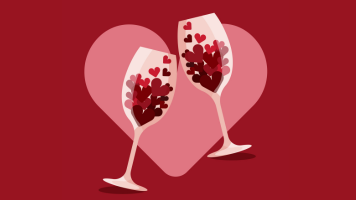 Seven Days of Love — Wine for Valentine’s Week
Seven Days of Love — Wine for Valentine’s Week
-
 Wine Turns Valentine Week into a Test of Social Chemistry
Wine Turns Valentine Week into a Test of Social Chemistry -
 India-EU Free Trade Agreement Signals Big Moment for Imported Wine
India-EU Free Trade Agreement Signals Big Moment for Imported Wine -
 Single Vineyard Wines Follow Place and Blends keeps Balance
Single Vineyard Wines Follow Place and Blends keeps Balance -
 One Cask Decision That Can Ruin or Refine Irish Whiskey
One Cask Decision That Can Ruin or Refine Irish Whiskey -
 Vermouth Adds Herbal Magic Without Losing Wine’s Essence
Vermouth Adds Herbal Magic Without Losing Wine’s Essence -
 Gin and Vodka Teach How Flavors Can Be Bold Yet Gentle
Gin and Vodka Teach How Flavors Can Be Bold Yet Gentle -
 Aging Writes the Real Port Wine Story Beyond Grapes
Aging Writes the Real Port Wine Story Beyond Grapes -
 Old World and New World Rosé Reveal Different Flavour Stories
Old World and New World Rosé Reveal Different Flavour Stories -
 When Calendar Slows and White Wines Fit the New Year Rhythm
When Calendar Slows and White Wines Fit the New Year Rhythm -
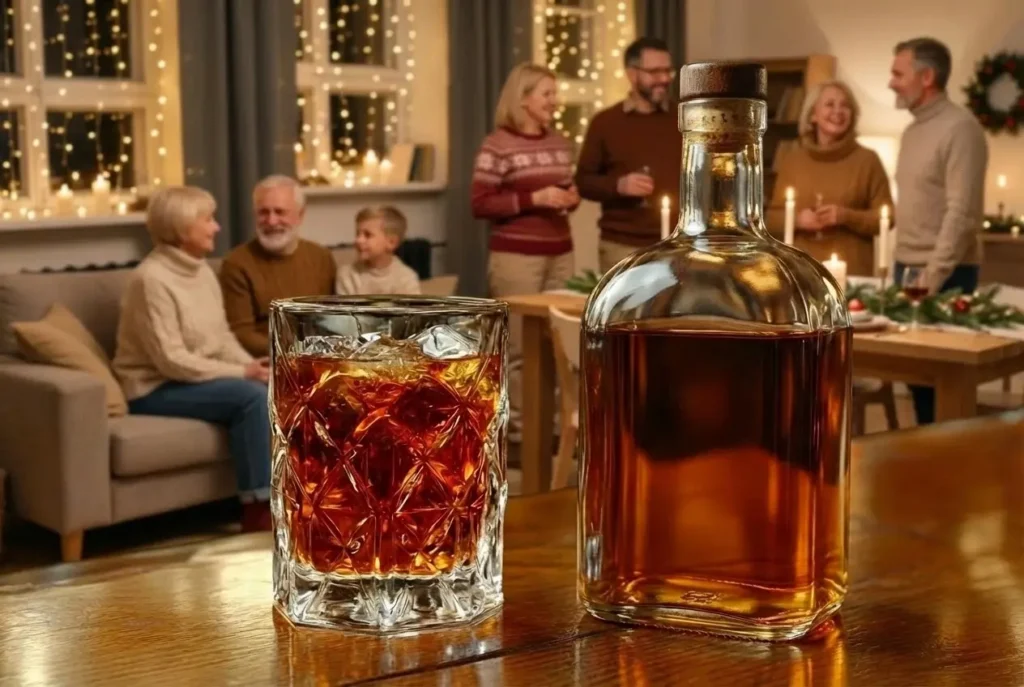 Cozy Comfort of New Year Evenings kept with Aged Scotch
Cozy Comfort of New Year Evenings kept with Aged Scotch

